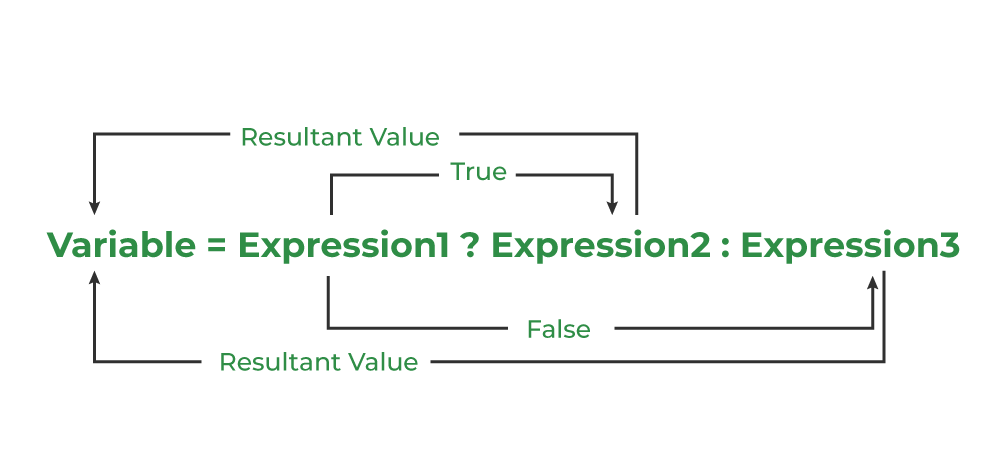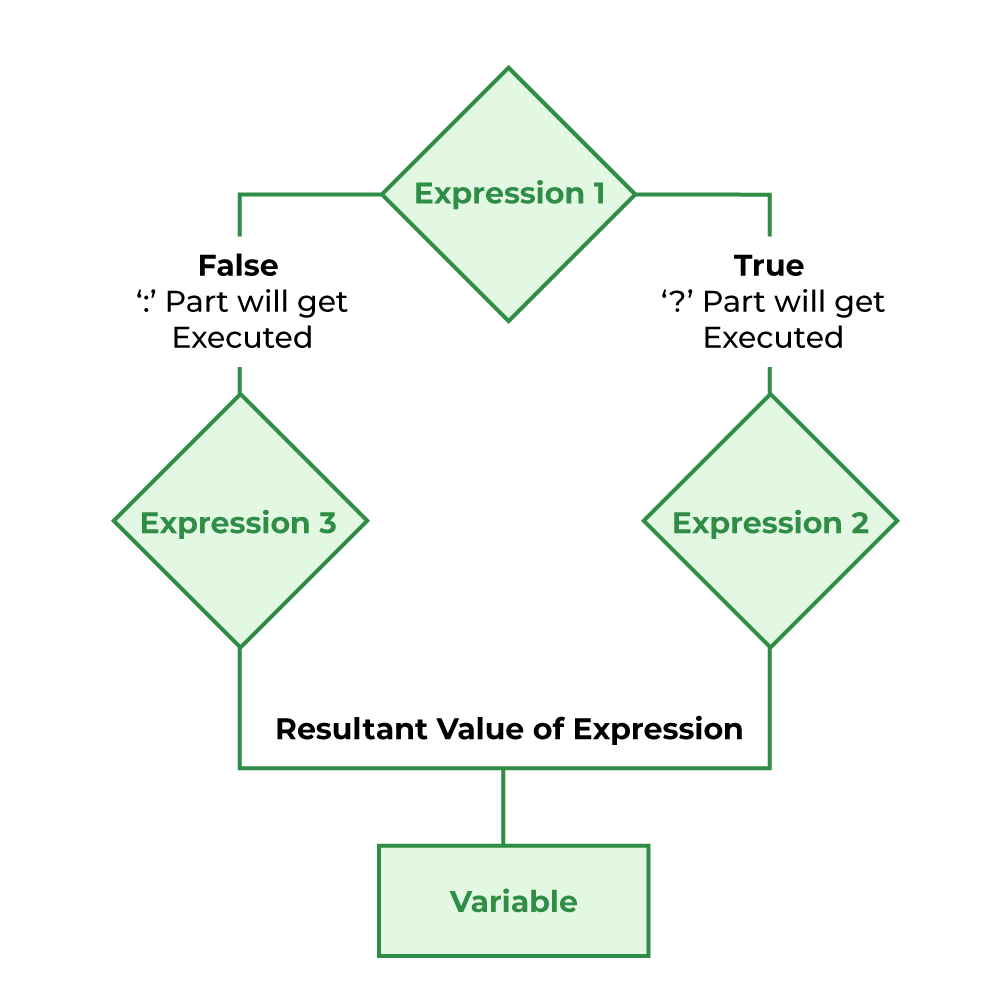Conditional or Ternary Operator (?:) in C
Last Updated :
03 Apr, 2023
The conditional operator in C is kind of similar to the if-else statement as it follows the same algorithm as of if-else statement but the conditional operator takes less space and helps to write the if-else statements in the shortest way possible. It is also known as the ternary operator in C as it operates on three operands.
Syntax of Conditional/Ternary Operator in C
The conditional operator can be in the form
variable = Expression1 ? Expression2 : Expression3;
Or the syntax can also be in this form
variable = (condition) ? Expression2 : Expression3;
Or syntax can also be in this form
(condition) ? (variable = Expression2) : (variable = Expression3);

Conditional/Ternary Operator in C
It can be visualized into an if-else statement as:
if(Expression1)
{
variable = Expression2;
}
else
{
variable = Expression3;
}
Since the Conditional Operator ‘?:’ takes three operands to work, hence they are also called ternary operators.
Note: The ternary operator have third most lowest precedence, so we need to use the expressions such that we can avoid errors due to improper operator precedence management.
Working of Conditional/Ternary Operator in C
The working of the conditional operator in C is as follows:
- Step 1: Expression1 is the condition to be evaluated.
- Step 2A: If the condition(Expression1) is True then Expression2 will be executed.
- Step 2B: If the condition(Expression1) is false then Expression3 will be executed.
- Step 3: Results will be returned.
Flowchart of Conditional/Ternary Operator in C
To understand the working better, we can analyze the flowchart of the conditional operator given below.

Flowchart of conditional/ternary operator in C
Examples of C Ternary Operator
Example 1: C Program to Store the greatest of the two Numbers using the ternary operator
C
#include <stdio.h>
int main()
{
int m = 5, n = 4;
(m > n) ? printf("m is greater than n that is %d > %d",
m, n)
: printf("n is greater than m that is %d > %d",
n, m);
return 0;
}
|
Output
m is greater than n that is 5 > 4
Example 2: C Program to check whether a year is a leap year using ternary operator
C
#include <stdio.h>
int main()
{
int yr = 1900;
(yr%4==0) ? (yr%100!=0? printf("The year %d is a leap year",yr)
: (yr%400==0 ? printf("The year %d is a leap year",yr)
: printf("The year %d is not a leap year",yr)))
: printf("The year %d is not a leap year",yr);
return 0;
}
|
Output
The year 1900 is not a leap year
Conclusion
The conditional operator or ternary operator in C is generally used when we need a short conditional code such as assigning value to a variable based on the condition. It can be used in bigger conditions but it will make the program very complex and unreadable.
FAQs on Conditional/Ternary Operators in C
1. What is the ternary operator in C?
The ternary operator in C is a conditional operator that works on three operands. It works similarly to the if-else statement and executes the code based on the specified condition. It is also called conditional Operator
2. What is the advantage of the conditional operator?
It reduces the line of code when the condition and statements are small.
Share your thoughts in the comments
Please Login to comment...